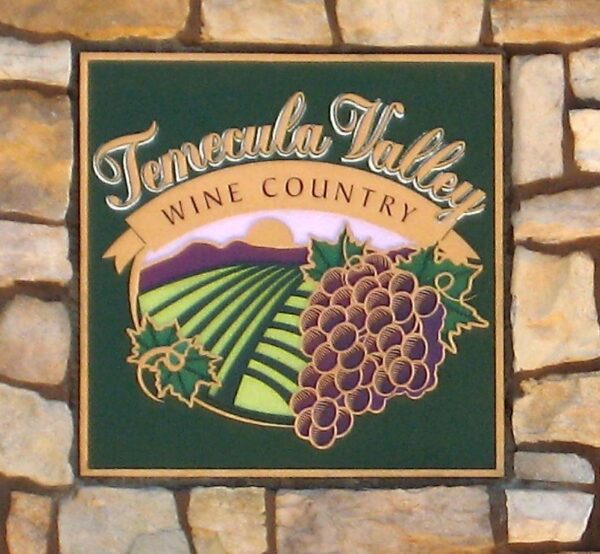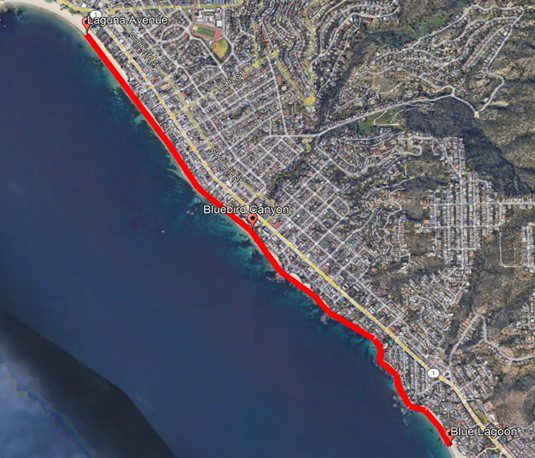The Board of Supervisors on Tuesday tentatively approved a bevy of amendments to Riverside County’s short-term rental ordinance, focusing on minimum age, family transfer and related regulations of rental properties in Idyllwild-Pine Cove and the Temecula Valley Wine Country.
“This is not perfect, and there are quite a bit of trade-offs,” Supervisor Manuel Perez said. “Maybe we see some great results. There are things here to hate and maybe to love. It is what it is.”
The first hearing on modifications to Ordinance No. 927 was held on Nov. 7 and spanned about five hours, but the board was undecided on multiple issues, culminating in a second hearing, which took less than two hours on Tuesday.
In the end, the board compromised on roughly a half-dozen proposals.
Chairman Kevin Jeffries’ chief concern was a recommendation favored by Supervisor Chuck Washington to constrain so-called “family transfers,” or the ability of an existing short-term rental homeowner to pass on the property and its current short-term rental certificate to an immediate family member, in the Temecula Valley Wine Country.
“I hate the idea of opposing generational wealth and the government destroying it for the sole reason of ‘we just don’t want you to own it anymore,'” Jeffries said. “We need to institute the ability … to go back to family transfer opportunities.”
Jeffries described the approach as relying on “attrition” to ultimately remove short-term rentals from certain locations, prompting Washington to offer a compromise of limiting transfers only in segments of the Wine Country where there is a manifest “saturation” of STRs. The entire board accepted that proposal.
The board also unanimously agreed that the minimum age of anyone applying for a short-term rental certificate in the Wine Country should be 25 years old, while in the county’s other unincorporated communities it will remain 21.
The board further backed dropping a previous proposal to limit short-term rental owners and operators to two certificates in Idyllwild and Wine Country if they already have more than that number certificated and available to rent.
The supervisors gave their nod to a biannual “lottery system” for the awarding of certificates in the mountain communities and Wine Country whenever existing caps on STRs are not hit and there are more than 10 applicants for newly available certificates.
The board signed off on a prior Transportation and Land Management Agency recommendation for maintaining an area on the north end of Wine Country, designated the “North Pocket Area,” as a stand-alone entity with an STR cap separate from the rest of Temecula Valley.
The overall limit in the Wine Country zone, where there are currently 998 dwellings, will remain just over 100 permitted STR properties.
“The idea is to maintain the character of the communities,” TLMA Director John Hildebrand told the board.
The board voted to make it unequivocal that off-street parking at short-term rental properties is prohibited.
To vet the strength and weaknesses of the amended Short-Term Rental Ordinance, the board directed TLMA officials to return with a report in six months, enabling the supervisors to determine whether additional modifications are required.
A moratorium on the issuance of STR permits in the mountain communities and Temecula Valley was first implemented in September 2022, then again last August, providing the Planning Commission time to consider targeted modifications to the ordinance, which were approved by the commission in a 4-0 vote. That action resulted in the matter going before the board for final consideration.
On Oct. 18, 2022, the board approved the new short-term rental regulatory framework for unincorporated communities, but Washington and TLMA officials supported excluding the Temecula Valley and Idyllwild-Pine Cove from the ordinance until specific problems related to enforcement of regulations in each location could be ironed out.
The number of rentals in Idyllwild-Pine Cove are limited to a total of 500. There are already 474 in operation.
The amended ordinance includes a 500-foot separation requirement, mandating that any newly certificated STRs be at least that distance from the nearest residence.
The amended ordinance includes “responsible operators” and “responsible guests” at short-term rental properties as being held liable for paying penalties in the event a property is determined to be a nuisance because of parties or other disturbances. Previously, only owners could be fined.
The revised framework implements testing requirements to confirm STR operators understand county regulations and are able to comply with them.
The regulatory apparatus established under Ordinance No. 927 focused on occupancy limitations, noise controls, parking designations and other health and safety provisions for STRs. It was in response to increasing problems stemming from unlicensed vacation rentals.
There are an estimated 1,130 licensed short-term rentals in unincorporated areas countywide, with the greatest concentrations in the Temecula Valley and mountain communities, according to the TLMA.
Short-term rentals are defined as residential dwellings leased for a maximum of 30 days and a minimum of two days and one night.
Owners are required to pay transient occupancy taxes to the county.







